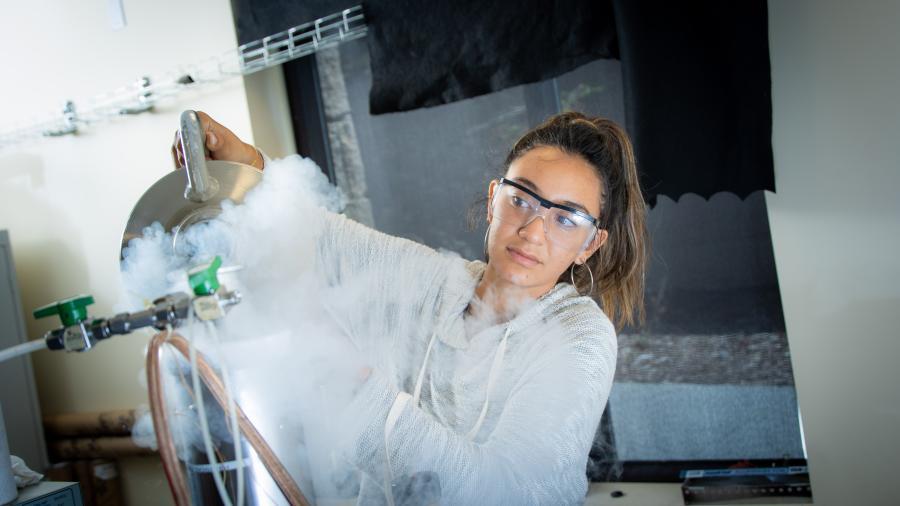Westmont Magazine Chemistry Department Receives Approval from the American Chemical Society

After a 10-year process, the American Chemical Society (ACS) Committee
on Professional Training voted in January 2022 to include Westmont College on the list of institutions approved by ACS. Effective immediately, the society will certify the degrees of Westmont graduates who complete the requirements of the college’s Professional Track for Chemistry.
The chemistry department first applied for the ACS certified degree in 2012. The society declined approval, citing some concerns about staffing, resources, equipment and course content. In response, the department hired a fifth full-time professor, adapted the curriculum and received a major gift from the Matthias family to endow an instrument repair and replacement fund.
The college applied again in October 2019 and moved smoothly through the five- stage process. ACS noted, “the chemistry program is committed to providing their students with a relevant and up-to-date chemistry education in preparation for the workforce, graduate school or professional school. Specifically, the department has a strong commitment to providing a rigorous laboratory training program for the ACS certified degree that includes undergraduate research supported by an endowment.” ACS also commended the faculty mentoring program for new faculty members, staff support for professors and “outstanding” efforts to improve safety.
“ACS approval immediately communicates that we have the resources and systems to offer a high-quality education in chemistry,” says Professor Michael Everest, who chairs the department. “It communicates the quality of our program to employers and graduate programs.”
Everest praises the department for its culture of significant personal interaction with students outside of class that includes conversations about their personal backgrounds and future aspirations. “I’m also proud of the way we integrate Christian faith and science,” he says. “We take both very seriously, and our students graduate having thought deeply about interactions between Christian theology and the practice of chemistry.”

